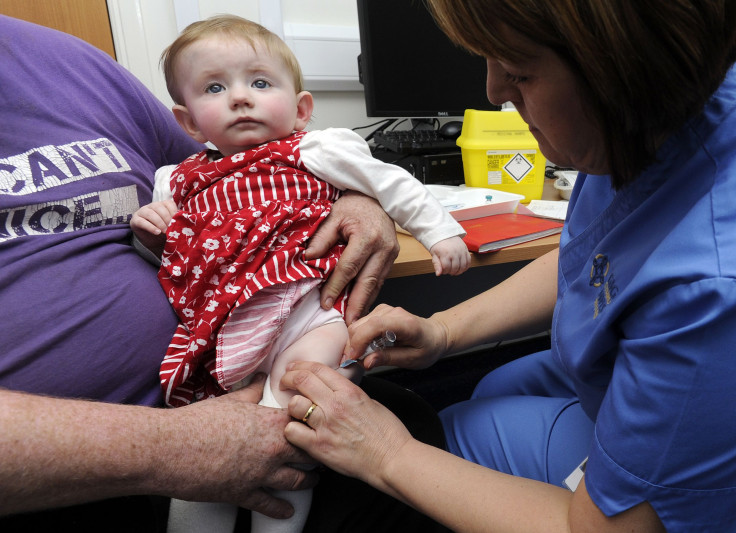Measles Outbreak Europe: WHO Urges Increased Vaccinations After 22,000 Cases And Multiple Deaths

The World Health Organization in Europe has called for an increase in measles vaccinations throughout the continent, days after a toddler in Berlin died from the disease and amid a growing measles outbreak in seven countries throughout Europe. In 2014 and in 2015 so far, Europe has had more than 22,000 cases of measles, even though in the past two decades, cases have declined by 96 percent in WHO’s European region, according to Dr. Zsuzsanna Jakab, the WHO regional director for Europe.
“We are taken aback by these numbers,” said Dr. Jakab in a statement. “We must collectively respond, without further delay, to close the immunization gaps.” The organization said that measles outbreaks were still occurring, despite efforts to end the spread of vaccine-preventable diseases, because of “pockets” of underimmunized or unimmunized people. Some parents were choosing not to immunize their children, while others simply lacked access to vaccination.
Controlling outbreaks through immunization is now a priority, Dr. Nedret Emiroglu, deputy director of the division of communicable diseases at the WHO, said in the statement. In order to do so, the organization called for improved surveillance measures to identify possible cases of measles, rapid testing, and the promotion of vaccination against measles through “high-quality evidence-based information.” Emiroglu added that even countries without reported measles cases had to maintain high levels of vaccination.
Europe had set the goal of eliminating the virus, which does not technically mean that the virus has been eradicated, but rather that measles found in a specific geographic area are not transmitted to other people for at least a year; or, any cases of measles would have to originate from elsewhere, such as foreign countries. In 2014 and 2015, the highest numbers of measles cases reported in Europe came from Kyrgyzstan (7,477), Bosnia and Herzegovina (5,340) and Russia (3,247). Other European countries with reported measles cases include Georgia, Italy, Germany and Kazakhstan.
In Kyrgyzstan, two one-year-old children have died from measles, and in March, the country is planning on launching a national campaign to promote the measles and rubella vaccine. Other countries in Europe are also planning on or have launched immunization campaigns targeting populations including children and adolescents, migrant groups and health care workers.
In September 2014, the WHO’s regional office in Europe had launched what it called a European Vaccine Action Plan, which was supposed to establish goals and methods to control vaccine-preventable diseases such as measles.
© Copyright IBTimes 2025. All rights reserved.





















